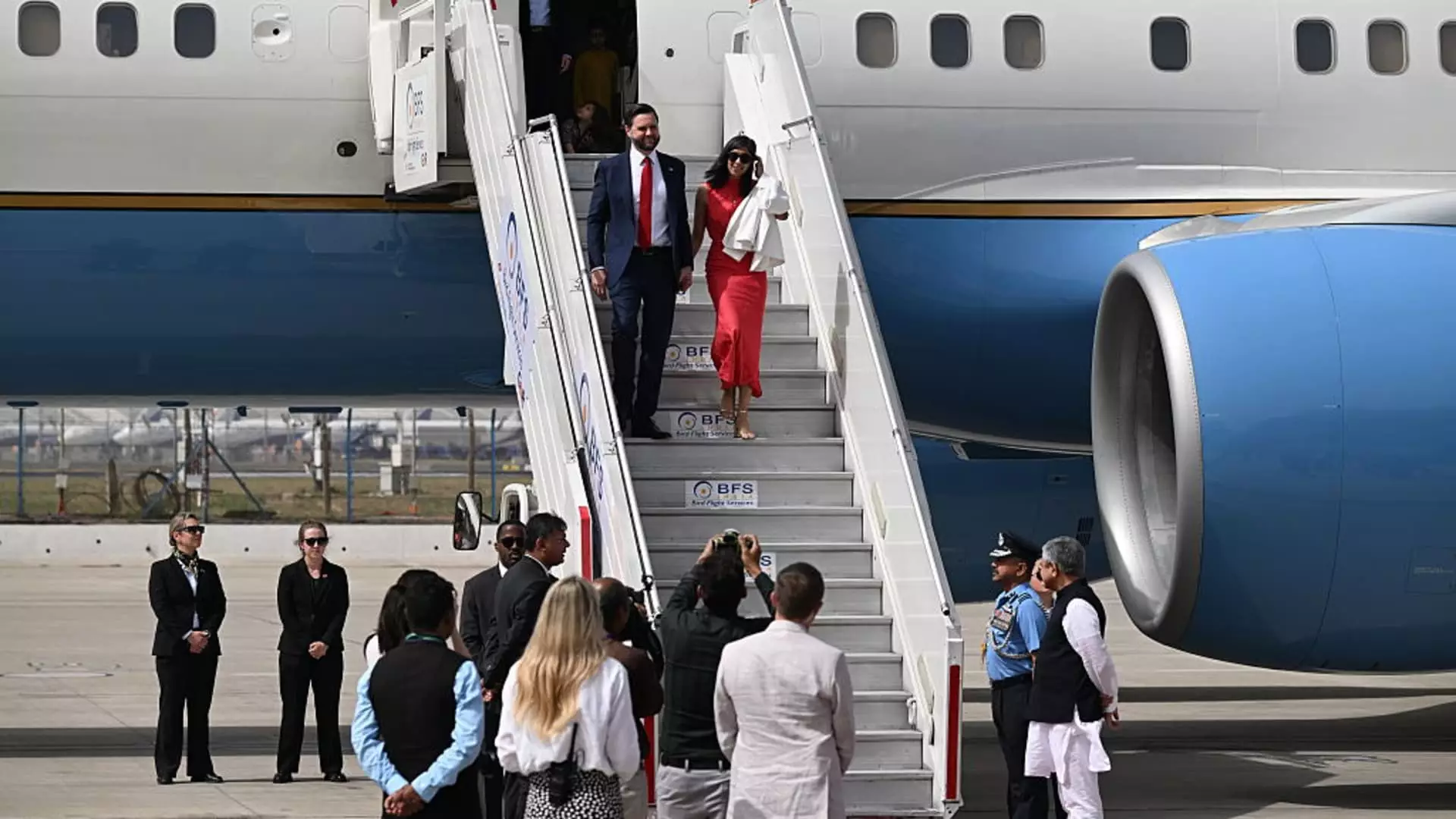U.S. Vice President JD Vance’s recent four-day visit to India is anything but simple. Although marketed as a personal trip—replete with family visits to the Taj Mahal and a wedding in Jaipur—the underlying political narratives are crucial to understand. While Vance’s personal connections deepen the cultural exchange, the trip carries significant implications for U.S.-India relations, set against the backdrop of Trump’s controversial trade rhetoric and escalating global tensions.
The juxtaposition of Vance’s familial roots in India with the transactional nature of his diplomatic agenda creates a complex dynamic. His wife, Usha, is a daughter of Indian immigrants, which adds a personal touch to proceedings that are otherwise dominated by economic negotiations. Vance’s engagement with Indian Prime Minister Narendra Modi is not merely a casual meeting; rather, it serves as a fraught stage for potential agreements that may shape the future of bilateral ties significantly.
Trade Talks: Addressing Tariffs Amid Diplomatic Challenges
In an era characterized by heightened protectionism, the question of tariffs emerges as a critical point of discussion. Modi’s administration is eager to avoid the label of “tariff abuser,” a term President Trump has wielded like a weapon, threatening to undermine progress in trade talks. The stakes are exceptionally high; the U.S. has long enjoyed a significant trading surplus with India, amounting to $45.7 billion in 2024. This figure underscores the complex interdependence between these two nations, which could falter if tariffs rise unchecked.
Vance’s meetings aim to smooth ruffled feathers. He seeks to fortify the bilateral trade agreement first discussed when Modi met Trump in Washington, yet the speed and momentum seem stymied. Industry insiders are murmuring about the improbabilities of immediate resolutions, glancing over the remaining 90-day pause on tariff hikes merely initiated by Trump. Here lies an opportunity and a threat—should the deadline loom without a tangible agreement, both nations risk cataclysmic economic fallout.
The Role of Global Politics
This visit is not occurring in a vacuum. U.S.-China tensions are amplifying, casting a shadow over international diplomatic relations and placing India in a precarious position. The Quad leaders’ summit scheduled later in the year adds further urgency to Vance’s mission; India, Australia, Japan, and the U.S. find themselves intertwined in a web of mutual reliance and strategic interests, yet the glue that binds them is fragile, often crumbling under the weight of nationalistic ideals.
Setting the groundwork for Trump’s impending visit to India could be perceived as a gamble; political cards must be played wisely. The environment looks volatile, and Vance carries the burden of his administration’s attempts to redefine alliances in a shifting geopolitical landscape. He stands as a representative of a U.S. administration increasingly inclined to exercise its power unchecked.
The Future of Global Partnerships
Defense cooperation represents a shining opportunity for the U.S.-India partnership, which Vance hopes to bolster further. The planned procurement of advanced weaponry like Javelin anti-tank missiles indicates a deeper military commitment. Still, it interrupts the naive optimism that accompanies such alliances. The prospective defense partnership, rather than fostering camaraderie, could inadvertently stir the pot of regional tensions, especially as arms proliferation in unstable areas raises concerns.
The visit will likely yield no immediate deals, but it highlights the often tumultuous path towards cooperation. Even amid collaboration, suspicion lingers—how can two nations reconcile the disparities in their interests while aspiring toward a common benefit? The willingness to contemplate arms deals suggests a willingness to escalate tensions, a trend that could bring backfires if not approached delicately.
Vance’s trip to India possesses a layered significance that transcends a mere diplomatic function. By fostering proactive discussions on trade, defense, and reinforcement of international alliances amidst burgeoning global strife, he embodies a clarion call for a more nuanced approach to foreign policy.

